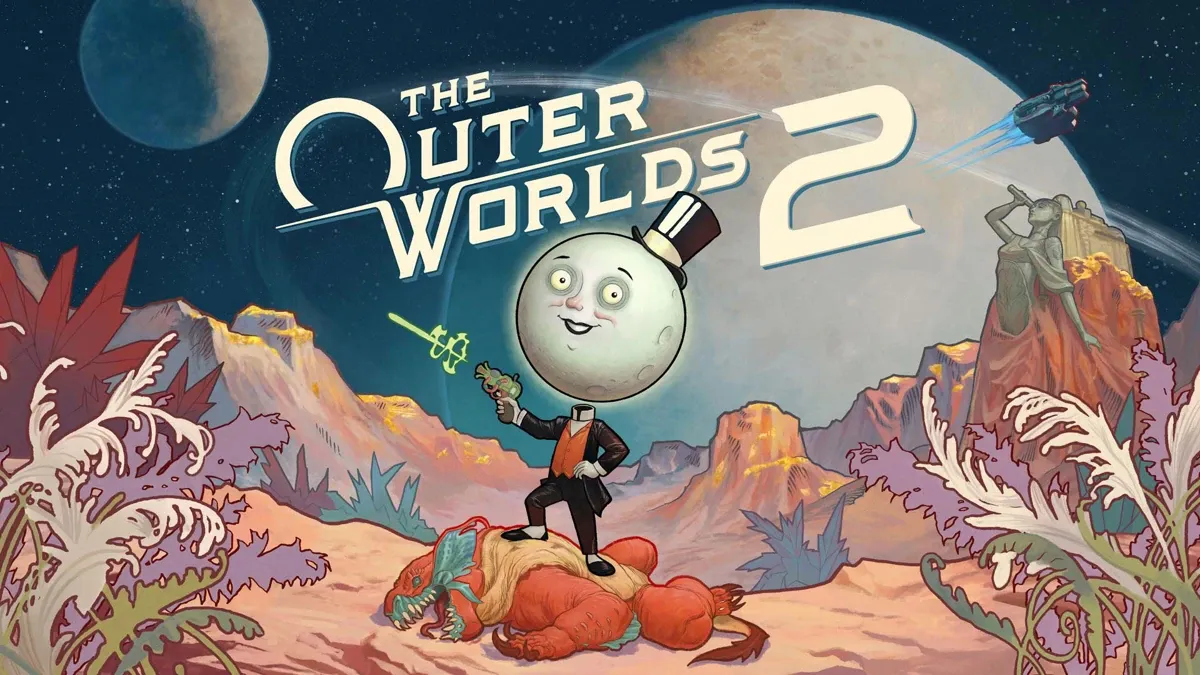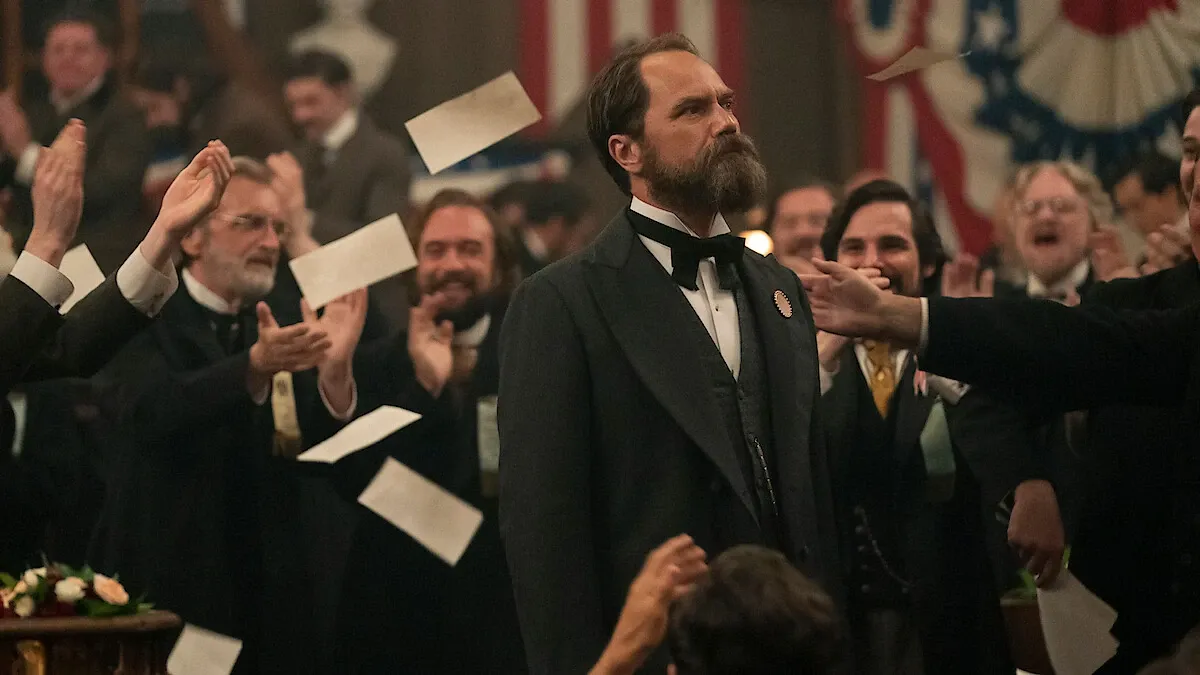Distributor provided a review copy.
I hugely enjoyed The Outer Worlds when it first launched in 2019. I enjoyed it so much, in fact, that I covered it three times; on PC, Xbox, and the Nintendo Switch. So to say that I was primed and ready for The Outer Worlds 2 would be an understatement.
After three weeks of discovering new quests, saving the galaxy from capitalism, and jumping between the PC (which is the primary review platform) and the Xbox Series X, I have thoughts, disappointments, and many delights to share about Obsidian's latest.

Despite the name, The Outer Worlds 2 isn't a direct sequel to the first one. It shares the same world and some of the factions, but you can easily hop into either one and not worry about homework. Obsidian's superlative talent at worldbuilding is in fine form here, and it's easy to get lost into their imaginative and often very funny dystopian vision of the future.
And yet the bones of the game are still very much the same, often to a frustrating degree. The Outer Worlds 2 is better looking and plays better than its predecessor, but it suffers from the same pitfalls when it comes to realizing its grand vision of a satiric space opera.
You take the part of an agent for the Earth Directorate, which is sold as an all-around go-getter space ranger outfit traversing the galaxy to right wrongs and put corporations in their place. Naturally, that's not quite the truth of it, as is the case with everything in The Outer Worlds.
After a mission goes way south, you wake up a decade later in the Arcadia system. This far reach of outer space is in a power struggle between Auntie's Choice, a hyper-capitalist corporation, the Protectorate, a extreme version of collectivism, and the Order of the Ascendant, who are fanatics of a mathematical equation said to contain the truth of the universe.
It's fair to say that you can call The Outer Worlds 2 many things, but subtle isn't one of them. But, more frustratingly, it's also insistent on placating the player at every turn.
For example, I love to play as smooth-talking characters who sneak into places and then spin a yarn to get themselves out of trouble. When an RPG manages to balance out these aspects of the gameplay to be challenging and varied, I'm as happy as a clam. The Outer Worlds 2 gets both kind of right, yet not quite to where it wants to be.
An early major mission saw me infiltrate an enemy base where a potential Big Bad was hiding. All I knew about getting there was the location, everything else was up for grabs. In one playthrough, I found a passage over a wrecked ship that let me cross a river to the storage units attached to the base. On another, I convinced a guard to hide sneak me in as a prisoner and let me loose once nobody was looking. A third run saw me discover a hidden path within a mine filled with vicious monsters. I ran into a storm drain to get away from the fighting, only to realize I was behind enemy lines in even worse trouble.
This is the kind of emergent gameplay that I hugely enjoy. It's all predetermined – I always end up in the same place and with the same objective – but the journey never feels the same. So far, so good.
Within the compound, I have to make my way to the Big Bad's office. To get there, I need a key card with the right designation. I try the door first, after all, my hacking and lockpicking skills are insane. No luck, I must use a key card. No problem, I'll go and pickpocket it from someone. No, says The Outer Worlds 2, it must be an empty key card and it has to be written with the correct code.
Suddenly, everything is very, very linear again.
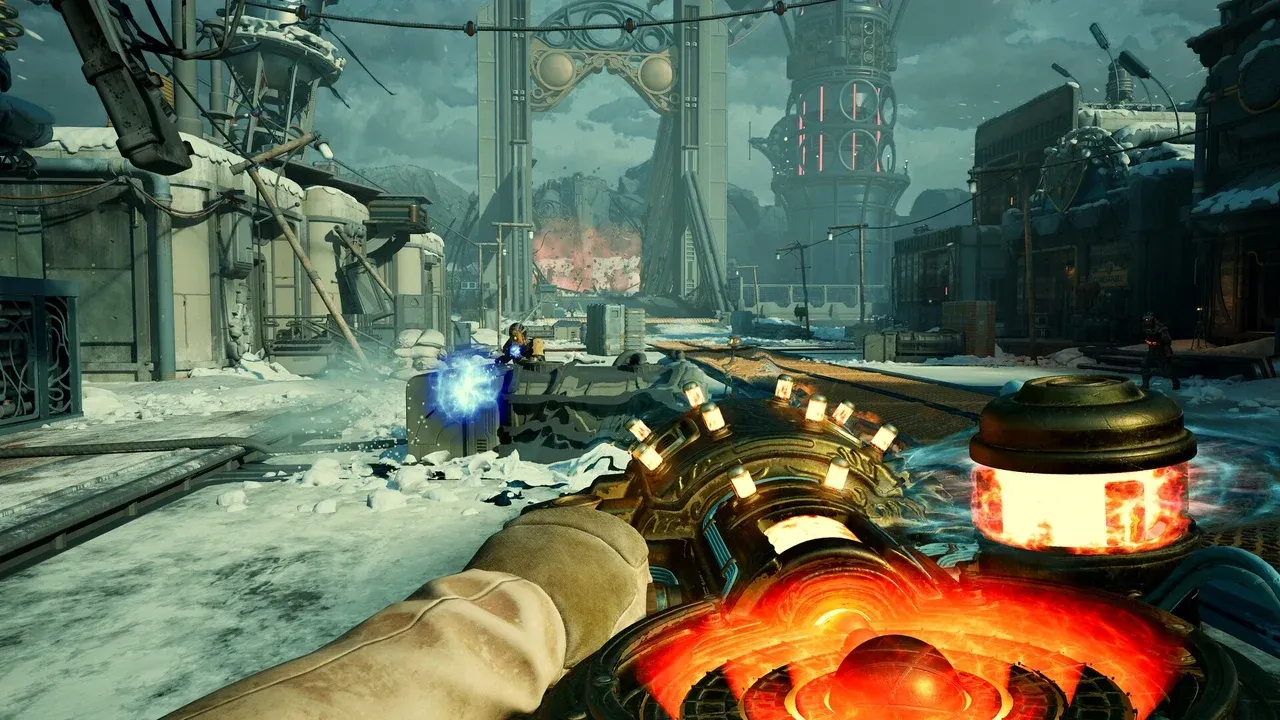
This is because The Outer Worlds 2 has to work within the confines of what this genre has become. It's not quite an RPG and not quite a shooter like Borderlands, although it borrows heavily from it. Instead, it's a hybrid of the two, where any opportunities to miss out on things or make inescapable choices have been cut from the start. I was initially put off by the rigid form of Kingdom Come: Deliverance 2 and its limited save mechanics. But that system forced me to consider my play style and choices. It made me roleplay as it is intended.
The Outer Worlds 2, for all its many great qualities, never achieves that. Everything is possible; if it isn't, it probably doesn't matter. Even major choices feel marginal because of the way the game is written. There's a huge catastrophe that can take place at the end of the first act, and you have to choose which of the lesser evils to mitigate the damage. Except it's surprisingly easy to choose "none of the above", which makes it as if nothing ever happened in the first place. Even if you end up wreaking havoc, a few well-placed dialog checks water down any permanent issues.
The second half of the game, where The Outer Worlds 2 has you choose between the three competing factions, is similarly lackluster. The setup is brilliant in that it forces you to weigh the pros and cons of oppressive ideologies against a cosmic cataclysm that would render all of them moot. There's a genuine sense of gravity to the stakes, at least until you realize the game even gently acknowledges that you don't need any of the factions to complete the story – and you're probably better off ignoring them altogether.
It doesn't feel earned nor immersive. If it was a conclusion that I came to on my own, it would have felt much more rewarding.
Despite these issues, The Outer Worlds 2 does so many things right that it feels more than the sum of its parts. The companions are all remarkably well written, even if they feel as static as the game world (more on that later). The dialog is sharp, poignant, and often very funny. It is arguably some of the best Obsidian has ever written.
The mission design is spotty. Some of the quests are better than the main campaign, while others feel superfluous and half-finished. Companion quests are likewise a little underwhelming, especially since they don't feel like major parts of your relationship with them. I like that every piece of dialog now carries weight, but the moments that count towards an unseen "score" of sorts are so sparse and disparate they rarely feel unified. As if at random points, without warning, the game just tells you that an off-handed remark is something your friend will remember forever.
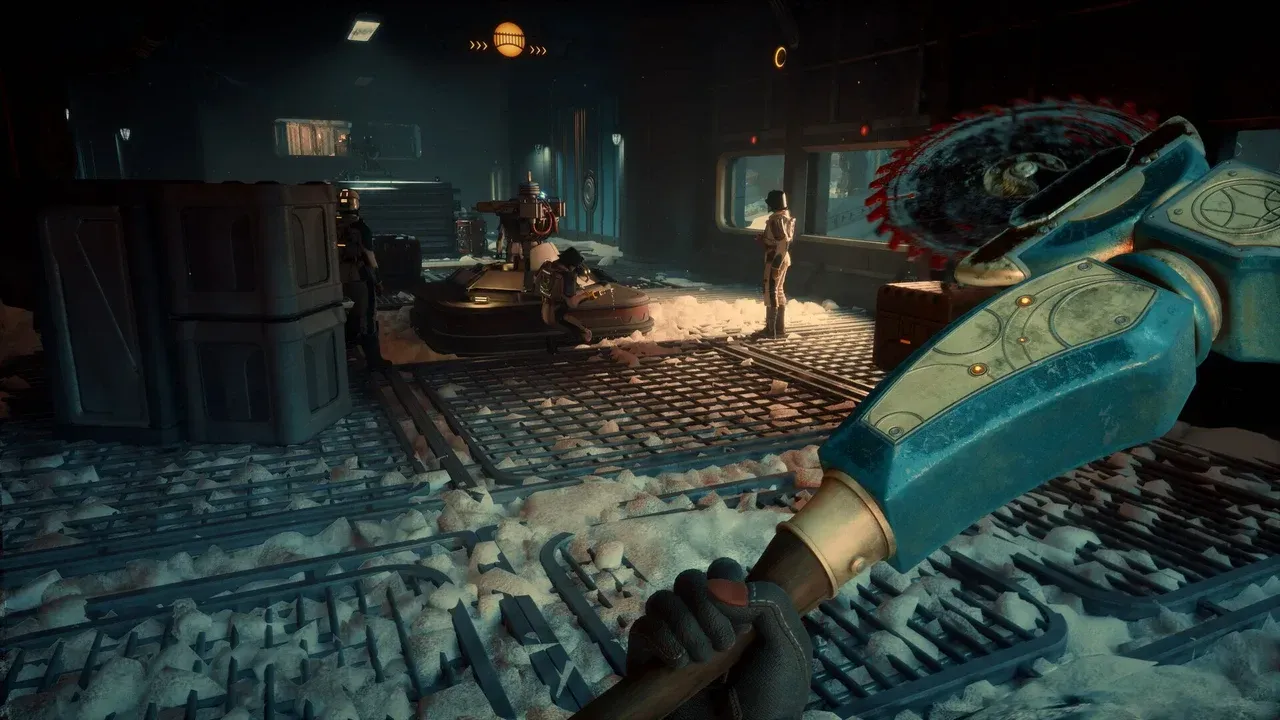
Then there's the combat, which is something even the first game struggled to make fun. Things are marginally better here, yet nowhere near the level they should be. It's maddening, too, since the combat in Avowed, another Obsidian title released earlier this year, is spectacular.
You get your basic set of both melee and long range weaponry, each of which has its own unique ammunition and modifications that you can build or purchase from vendors. But none of them feel that different in practice and there's a constant nagging sense that you're shooting peas at incoming freight trains most of the time. Enemies are bullet sponges until they're suddenly not, and there's none of the dynamic sense of fun that other shooters or first-person action adventures have achieved in this area.
Don't get me wrong, it's insane that a smaller studio like Obsidian can release two great games – the other being one of the best RPG's of all time – in a single year. Whatever issues I have with The Outer Worlds 2 pale in the light that it's a completely different kind of beast from Avowed and still works as a complete whole on its own terms.
And while the wait between titles is still unreasonably long at six years, The Outer Worlds 2 does feel like it was worth the wait.
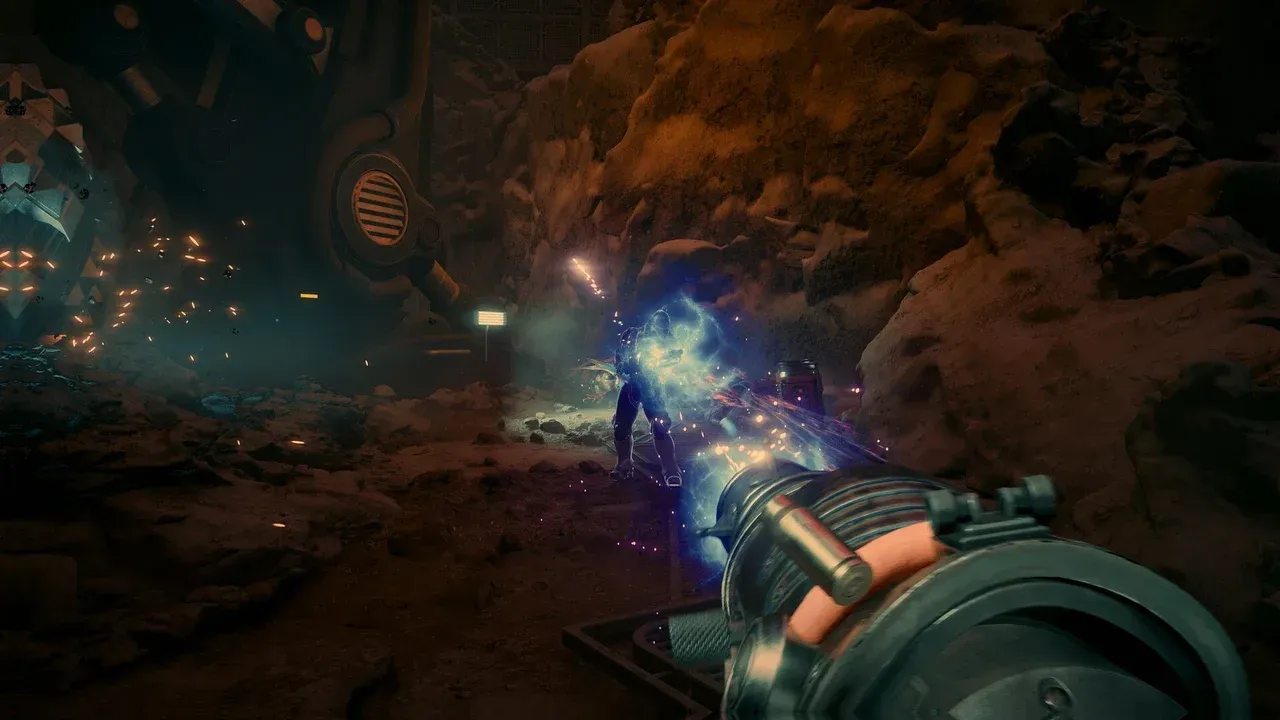
If I sound down on The Outer Worlds 2, I don't intend to. For the most part, I dearly love what it sets out to accomplish and the areas where it succeeds. I think the writing and narrative choices are often extremely smart and eloquently woven into the storytelling. The world is fun to explore and there are numerous instances of wit that would make Douglas Adams blush.
It's just that a lot of this is already what we got in the first game, and there's very little sense of forward momentum. The Outer Worlds 2 is a good game when it should be a great one. It expands on many ideas and it is a bigger, bolder game, but only within the strict limitations the first one set forth. It never even tries to break free from that mould.
Which is a maddening situation. It is brimming with potential, which cannot be reviewed as it exists only as a concept, and it does so much right that in any other year it would be a standout title. But in 2025, which is the best year for RPG gaming in history, it's just fine, and somehow being just fine feels almost worse than being notably bad.
If you loved The Outer Worlds, you will at the very least like The Outer Worlds 2. It won't surprise or challenge you, but it does deliver comfort food of sorts with the skill and precision that Obsidian Entertainment does best. It has the capacity for more and maybe the third part will deliver on that promise. The future remains unclear.

